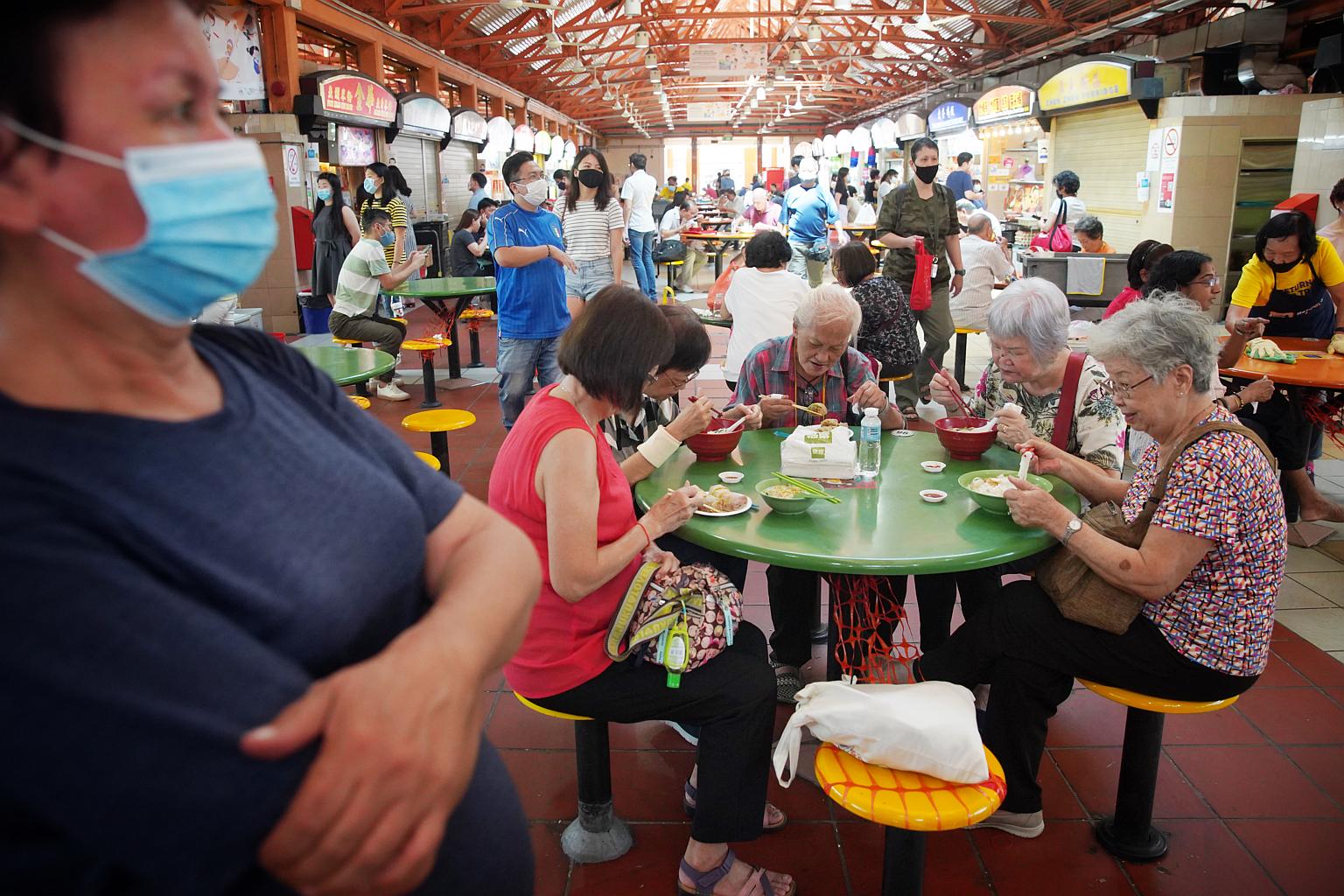Boost for Singapore's hawker culture Unesco bid
Sign up now: Get ST's newsletters delivered to your inbox

Diners eating at Maxwell food centre on Nov 17, 2020. The report by the Unesco evaluation body said hawker culture provides a sense of identity and continuity for people in Singapore.
ST PHOTO: JASON QUAH
Follow topic:
The unique yet familiar experience of eating at hawker centres could soon be internationally recognised as a practice to be protected, after an expert body recommended that Singapore's hawker culture be added to the Unesco intangible cultural heritage list.
A 24-member Unesco intergovernmental committee will give the final verdict next month, but the report on Monday by the international evaluation body puts Singapore in good stead to have its first inscription on the list.
If successful, hawker culture will join more than 463 other items similarly identified, including Chinese shadow puppetry in China, the making and sharing of kimchi in North and South Korea, and India's yoga.
Ms Chang Hwee Nee, chief executive officer of the National Heritage Board (NHB), said: "The evaluation body's recommendation is an affirmation by international experts of Singapore's bid.
"Comprising a unique combination of food, space and community, hawker culture has evolved into a microcosm of our multicultural society, and is an integral part of our living heritage."
The NHB, the National Environment Agency (NEA) and the Federation of Merchants' Associations jointly submitted the bid in March last year, although preparatory work started earlier in April 2018.
The list, created by Unesco in 2008, hopes to give added prestige to "living heritage" such as performing arts, festive events, rituals and oral traditions.
By affording entries international recognition, it also commits states to making sure these practices are transmitted to the next generation, while promoting intercultural dialogue and mutual respect for other ways of life.
If hawker culture is successfully inscribed on the list, Singapore will have to submit a report to Unesco every six years on its efforts to safeguard hawker culture.
Mr Tan Meng Dui, chief executive officer of the NEA, said Singapore's bid itself already shows the country's commitment to the preservation of hawker culture, and that his agency "remains steadfast" in its efforts to attract new entrants and work with current stakeholders.
He said: "Hawker culture is synonymous to Singapore, and is a unifying culture that binds our people and society."
There are currently about 6,000 hawkers spread over 110 hawker centres. Evolving together with Singapore's urbanisation through the years, hawkers have transformed from being individuals selling their fare on the streets to the stallholders at the more built-up hawker centres of today.
The report by the experts said that Singapore's hawker culture fulfilled all the criteria in the nomination process, noting that the mass participation by Singaporeans in the application process revealed the public awareness and "significant vitality" of hawker culture.
Over 850,000 people, through various means such as attending travelling exhibitions and signing letters of consent, participated in generating the letters, photographs and videos used in the application documents.
There were 42 submissions in this year's bid, including mechanical watchmaking by Switzerland and France, Budima dance by Zambia and tree beekeeping culture by Poland and Belarus.
Among these, 25 entries - including Singapore's - were recommended to be inscribed on the official Intangible Cultural Heritage of Humanity list.
Unesco refers to the United Nations Educational, Scientific and Cultural Organisation, which hopes to further international peace through education such as the promotion of heritage.
SEE EDITORIAL

